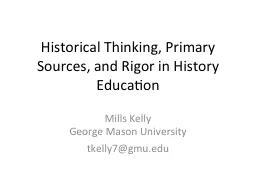PDF-Historical policy and outcomes
Author : yoshiko-marsland | Published Date : 2016-12-28
1 CONTENTS Summary 3 3 Policy recommendations 5 1 Funding governance and regulation of bus and rail markets 7 11 Governance and regulatory framework of Great Britain146s
Presentation Embed Code
Download Presentation
Download Presentation The PPT/PDF document "Historical policy and outcomes" is the property of its rightful owner. Permission is granted to download and print the materials on this website for personal, non-commercial use only, and to display it on your personal computer provided you do not modify the materials and that you retain all copyright notices contained in the materials. By downloading content from our website, you accept the terms of this agreement.
Historical policy and outcomes: Transcript
1 CONTENTS Summary 3 3 Policy recommendations 5 1 Funding governance and regulation of bus and rail markets 7 11 Governance and regulatory framework of Great Britain146s rail market . What is Historical Fiction?. Historical fiction is fiction set in the past. It contains a rich mixture of fact and fiction. . . What is Historical Fiction?. Through novels and short stories, an author may combine factual information about time, place, events, and real people of the period with fictional characters, dialogue, and details.. This semester we will examine Canadian history through the lens of these Historical . T. hinking . C. oncepts and apply them to our ten Big Ideas.. Establish . historical significance. Use . primary source evidence. Laura Franklin-Hall. New York University. April 2015. Scientific Classifications. g. ranular materials. f. undamental particles. g. enes. e. ven-toed ungulates. Niger-Congo languages. Differences Between Classifications. . Immunity . - state of protection from an infectious disease.. . 430 BC – Greek historian Thucydides - Athenian plague. . 15. th. century – Chinese attempts to induce immunity. . 1718 – Mary Wortley Montagu – innoculated her children. History?. WHAT?. WHY?. HOW?. How do we decide what and whose stories to tell?. Historical Significance. Events of History Timeline. Activity #1. Results in a . Change. Reveals. something about the past or the future. Mills Kelly. George Mason University. tkelly7@gmu.edu. What Are We Going to Do Today?. Think about thinking like a historian. Watch some people think like a historian. Try to arrive at some partial agreement about what we think historical thinking is and how we can recognize it when we see it. Bruce VanSledright. University of North Carolina, Charlotte. NCSS Investigation 2015. Principles for Assessment?. So let’s begin…. We need to start with . assessment-design principles. One excellent source:. Journal #. Should schools replace books with tablets. ?. Brainstorm ideas supporting your assigned side. After a 3 minute deliberation, we’ll have a class debate.. What is Historical Argumentation?. Marker History. Marker Types. Recorded Texas Historic Landmark (RTHL) Markers. *buildings and structures only*. Marker Types. Historic . Texas Cemetery . . (HTC) Markers. *. HTC. designation is a prerequisite*. Kara Walker: Historical Narrative. Video. The Silhouette. Silhouette: A view of an object or a scene consisting of the outline and a featureless interior, with the silhouetted object usually being black. The term was initially applied in the 18. South Africa/Apartheid/Mandela. Days 3-4. Africa. Standard:. SS7H1. Students analyze continuity and change in Africa leading to the 21. st. century.. b. Explain how nationalism led to independence in South Africa, Kenya, and Nigeria.. Manolis Dafermos . University of Crete . The disappearance of dialectics . Dialectics has disappeared from sight in North Atlantic Academy. . Increasing . individualisation. and . fragmentation. of social life. Strand. History 7-10. Victorian Curriculum History Structure. HISTORICAL CONCEPTS AND SKILLS. HISTORICAL KNOWLEDGE. History Curriculum. Do: . What do we want students to be able to do?. Know: . What do we want students to know. Elementary History-Social Science. Winter Symposium. January, 2015. Objectives. Participants will understand the process of Historical Inquiry. Participants will understand how to use multiple pieces of informational text and close reading to help students to think critically about past events.
Download Document
Here is the link to download the presentation.
"Historical policy and outcomes"The content belongs to its owner. You may download and print it for personal use, without modification, and keep all copyright notices. By downloading, you agree to these terms.
Related Documents














